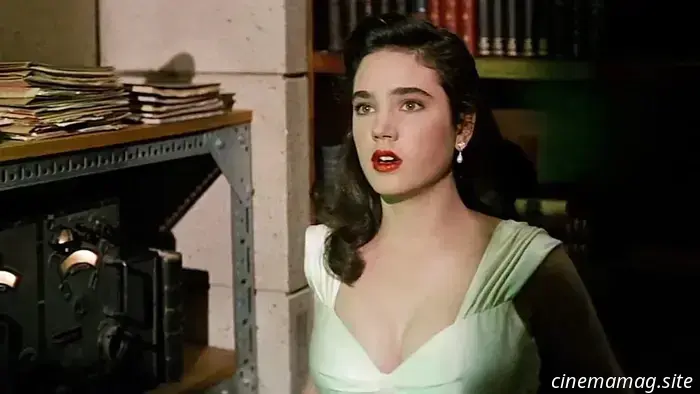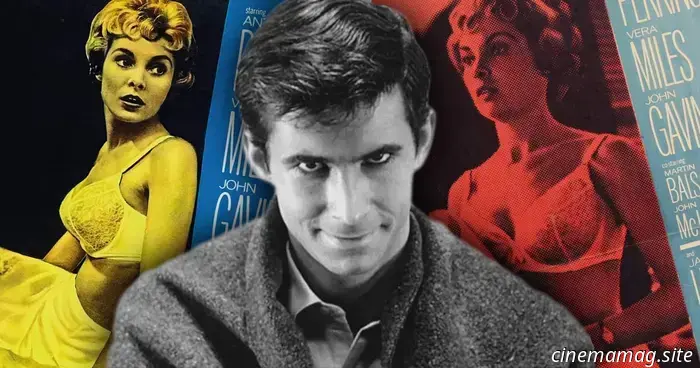
The 11 Most Terrifying Female Stalkers in Movies
In reality, the majority of stalkers are men, yet many films challenge this narrative by featuring female stalkers as central characters.
According to the U.S. Department of Justice in 2023, stalking is described as “a form of gender-based violence that affects all communities and neighborhoods,” highlighting that “statistics reveal that one in three women and one in six men experience stalking during their lifetimes.”
The Justice Department reported in 1998 that though stalking is a crime that applies to any gender, “the majority (78 percent) of stalking victims are female and most (87 percent) of stalking offenders are male.”
This leaves us wondering why there are so many female stalkers represented in films. For one, filmmakers often aim to subvert audience expectations. Additionally, it might be beneficial for men to see — through narratives where men are stalked by women — what it feels like to be on the receiving end of intense, unwanted attention. What the stalker perceives as a romantic comedy may feel like a horror story to the person being stalked.
With that in mind, here are nine of the most chilling female stalkers from film.
Evelyn (Jessica Walter) in Play Misty for Me (1971)
In Clint Eastwood’s directorial debut, Play Misty for Me, Eastwood portrays a small-town disc jockey who repeatedly receives requests from an obsessed fan (Walter) for the jazz piece “Misty.” After an accidental encounter at a bar, the two spend the night together, but Evelyn's possessiveness escalates, leading to violent outcomes. This film is particularly interesting in retrospect, as Eastwood would go on to become a highly respected director and the mayor of Carmel-by-the-Sea, where the story unfolds, while Walter would later portray a completely different, yet equally captivating character, Lucille Bluth, in Arrested Development.
Alex Forrest (Glenn Close) in Fatal Attraction (1987)
The success of Fatal Attraction can be credited with launching a decade filled with portrayals of female stalkers. Similar to the 1994 film Disclosure, which tackled workplace sexual harassment, Fatal Attraction reversed the typical gender dynamic in stories of stalking. The plot follows Dan Gallagher, a seemingly average man who engages in an affair with Alex (Glenn Close), unaware that she is a sociopath unwilling to let him go. Her horror-inducing behavior soon turns dangerous for him and his family, culminating in the notorious scene where she boils their pet rabbit. The film holds significant cultural relevance, becoming the second highest-grossing movie of 1987, earning six Academy Award nominations including Best Picture, and inspiring a wave of erotic thrillers in the late '80s and early '90s.
Annie Wilkes (Kathy Bates) in Misery (1990)
Kathy Bates delivers an exceptional performance in Misery, part of a remarkable series of successes for director Rob Reiner during the late ’80s and early ’90s. Unlike Alex Forrest, who uses sexuality, Bates’ character Annie Wilkes employs something arguably more terrifying: she pretends to show motherly care for Paul (James Caan), a best-selling author who ends up in her isolated home following an accident. When Annie discovers that Paul intends to kill her favorite character, Misery Chastain, her wrath emerges, and she makes it clear she will do anything to maintain her hold over him. The film’s most gripping moment features the tense hobbling scene. Bates rightfully won the Best Actress Oscar for her role, making Misery the only adaptation of a Stephen King novel to receive such an honor.
Hedy Carlson (Jennifer Jason Leigh) in Single White Female (1992)
The stalker in Single White Female is portrayed by Jennifer Jason Leigh as a woman stalking her new roommate, Allison Jones (Bridget Fonda). Although Hedy initially appears to be quiet and reserved, the film escalates in strangeness as she starts to mimic Allison's signature short red hairstyle. This odd behavior spirals into something far more sinister involving Hedy’s deceased twin sister and her increasingly inappropriate impersonation of Allie. The film also features creatively violent scenes, including stabbings with a stiletto heel.
Mrs. Mott (Rebecca De Mornay) in The Hand That Rocks the Cradle (1992)
Rebecca De Mornay’s character Mrs. Mott presents a chilling twist on the female stalker trope in The Hand That Rocks the Cradle. After Claire (Annabella Sciorra) accuses her doctor husband of sexual misconduct, resulting in his suicide and Mrs. Mott losing her home, she seeks revenge by infiltrating Claire’s family. The situation escalates as she frames a handyman (Ernie Hudson), threatens a child, and even breastfeeds Claire’s infant. Naturally, the story culminates in violence, with a symbolic white picket fence making an impactful appearance.
Drew Barrymore as Ivy in











Other articles
 12 Greatest Superhero Films Prior to the MCU
12 Greatest Superhero Films Prior to the MCU
 McFarlane presents new sixth scale collectibles of Spider-Man and Deadpool.
Building on the reveal of The Punisher earlier this week, McFarlane Toys has introduced two additional sixth scale Marvel collectible figures: Deadpool and Spider-Man. These figures are designed to capture scenes reminiscent of the cover art from Deadpool #1 and Marvel Tales #223. They are currently available for pre-order at a price of $59.99 each; take a look at them […]
McFarlane presents new sixth scale collectibles of Spider-Man and Deadpool.
Building on the reveal of The Punisher earlier this week, McFarlane Toys has introduced two additional sixth scale Marvel collectible figures: Deadpool and Spider-Man. These figures are designed to capture scenes reminiscent of the cover art from Deadpool #1 and Marvel Tales #223. They are currently available for pre-order at a price of $59.99 each; take a look at them […]
 Kathryn Bigelow's A House of Dynamite will be available on Netflix in October.
Netflix has officially revealed A House of Dynamite, the newest project from Oscar-winning director Kathryn Bigelow (The Hurt Locker, Zero Dark Thirty), set to premiere in select theaters and on the streaming platform this October. Helmed by Bigelow with a screenplay by Noah Oppenheim (Jackie, Zero Day), the political thriller centers around a group from the White House […]
Kathryn Bigelow's A House of Dynamite will be available on Netflix in October.
Netflix has officially revealed A House of Dynamite, the newest project from Oscar-winning director Kathryn Bigelow (The Hurt Locker, Zero Dark Thirty), set to premiere in select theaters and on the streaming platform this October. Helmed by Bigelow with a screenplay by Noah Oppenheim (Jackie, Zero Day), the political thriller centers around a group from the White House […]
 Dan Trachtenberg, the director of Prey and Badlands, hints at another Predator film.
Dan Trachtenberg is aware that there's a strong desire for more Predator content, particularly if he is the one directing, and it seems we might just get it. The director has recently confirmed that he is developing a fourth film after the success of Prey and his two subsequent projects. Trachtenberg humorously mentioned that he “kind of rushed” the animated film Predator: Killer of Killers and the […]
Dan Trachtenberg, the director of Prey and Badlands, hints at another Predator film.
Dan Trachtenberg is aware that there's a strong desire for more Predator content, particularly if he is the one directing, and it seems we might just get it. The director has recently confirmed that he is developing a fourth film after the success of Prey and his two subsequent projects. Trachtenberg humorously mentioned that he “kind of rushed” the animated film Predator: Killer of Killers and the […]
 Psycho at 65: The Tale Behind Alfred Hitchcock's Brilliant Horror Film
Hasitha Fernando explores the narrative surrounding Alfred Hitchcock's Psycho as it marks its 65th anniversary. Psycho remains, undeniably, Hitchcock's most impactful and renowned work, even with his direction of other exemplary films like Vertigo, Dial M for Murder, and North by Northwest. At the time of its release, the film generated significant controversy.
Psycho at 65: The Tale Behind Alfred Hitchcock's Brilliant Horror Film
Hasitha Fernando explores the narrative surrounding Alfred Hitchcock's Psycho as it marks its 65th anniversary. Psycho remains, undeniably, Hitchcock's most impactful and renowned work, even with his direction of other exemplary films like Vertigo, Dial M for Murder, and North by Northwest. At the time of its release, the film generated significant controversy.
 G.I. Joe: The Movie is the focal point of Super7's newest wave of G.I. Joe ReAction+ figures.
Super7 has officially announced a fourth wave of figures from its G.I. Joe ReAction+ action figure line, highlighting G.I. Joe: The Movie with the release of new 3.75″ O-Ring figures for Cobra Commander (Once A Man), Cobra-La Royal Guard, Jinx, and Lt. Falcon. These figures are currently available for pre-order now, and you […]
G.I. Joe: The Movie is the focal point of Super7's newest wave of G.I. Joe ReAction+ figures.
Super7 has officially announced a fourth wave of figures from its G.I. Joe ReAction+ action figure line, highlighting G.I. Joe: The Movie with the release of new 3.75″ O-Ring figures for Cobra Commander (Once A Man), Cobra-La Royal Guard, Jinx, and Lt. Falcon. These figures are currently available for pre-order now, and you […]
